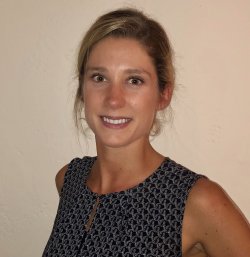School safety research rarely considers the school security climate as a product of the simultaneous implementation of several school safety interventions. This is potentially problematic, as schools seldom employ only one safety intervention. Rather, schools today employ several interventions simultaneously to meet their safety and security needs. The purpose of this study is to investigate and identify effective types of school security climates and examine student growth within these climates. This multi-year project attempts to meet two goals: 1) Identify effective types of school security climates; and 2) Determine how the school security climate affects individual students. This study proposes to continue a three-phase longitudinal design.
This study will continue following the pilot cohort of 9th grade students (n=359) within a local school district during the 2019-2020 and 2020-2021 school year. Starting in the 2019-2020 school year, and with the assistance of the BOE, all students in ninth and tenth grade (N=~5,000) across all high schools in a local school district (N=14) will be recruited to participate in the study. Once data is collected in the 2019-2020 school year, students will be matched across different types of school security climates (Phase 2) to identify and compare student progress in schools with different types of security climates over time (Phase 3).
Analysis: Latent Class Analysis and Logistic Regression was employed to classify schools by security climate using student self-report data. Propensity Matching will be used in place of randomization to match students on demographic characteristics with the purpose of creating comparable groups of students within different climates. Growth Curve Modeling will be used to model students trajectories within different security climates over two and three year periods, respectively.
This study is funded through the National Institute of Justice, Award #2017-CK-BX-4008.
Contact Us
Please direct all questions regarding this study to either Dr. Matthew Cuellar or Dr. Samantha Coyle.

Dr. Matthew J. Cuellar is a tenure-track Assistant Professor in the Department of Social Work and Child Advocacy. He earned his PhD in Social Work from the University of Tennessee, Knoxville with a Minor in Statistics from the Haslam School of Business. He earned a Master in Social Work from The University of Alabama. Dr. Cuellar has served as PI, Co-PI, Research Scientist, and Program Evaluator on externally funded research projects totaling nearly $3.6M. Dr. Cuellar’s current research focuses on school safety and barriers to academic achievement among adolescents, particularly those adolescents in urban and inner-city environments. He is extremely passionate about his research and working with children, and has active programs of research in several local school districts in the State of New Jersey. Dr. Cuellar has extensive experience working with students in higher education and currently teaches in the CHAD MA and Social Work MSW degree programs.

Dr. Samantha Coyle is an Assistant Professor in the Psychology Department at Montclair State University. She received her BS in Psychology from Syracuse University and her PhD in School Psychology from Northern Illinois University. She is a Nationally Certified School Psychologist. Her research interests involve investigating the positive and negative features of adolescent social relationships; specifically social support and bullying victimization. She is interested in exploring how positive and negative aspects of adolescent relationships impact student perceptions of the school environment and contribute to academic, social and emotional challenges in youth. Dr. Coyle’s work has been published in highly regarded journals in the field including Psychological Bulletin, Journal of School Psychology and School Psychology Review.
Student Team
Karly S. Weinreb, M.A, is a doctoral student in the clinical psychology program at Montclair State. Her clinical and research interests are in the area of trauma and other adverse events and their psychological outcomes. She obtained her B.A from Binghamton University and her Master’s from Hunter College where she completed her thesis on Hypervigilance among trauma-exposed and non-trauma exposed young adults. She is currently a graduate assistant in Dr. Samantha Coyle’s lab.
Beth Keefe’s interests are in child maltreatment, domestic violence research, community outreach and community organization.
Francesca Stambolian interested in racial disparities in the school system and the juvenile justice system. She strives to become a social worker in a juvenile justice facility
Ely Schudrich is a Master’s student interested in mathematics, social justice and criminal justice reform.
Gaby Davila is interested in improving the lives of children and adolescents through the practices of clinical psychology and mindfulness. Her research and clinical interests include environmental and genetic factors before adulthood, the influence of trauma on the brain, cognitive, social, emotional, and behavioral changes with age, victimization and other unique experiences, interventions on educational performance and mindfulness. Gaby was awarded the First-Year Dean of Students Award 2019 and has been on the Dean’s List consecutively throughout her college career. She is also a member of the Montclair State University Honors Program and the Presidential Scholars Program.
